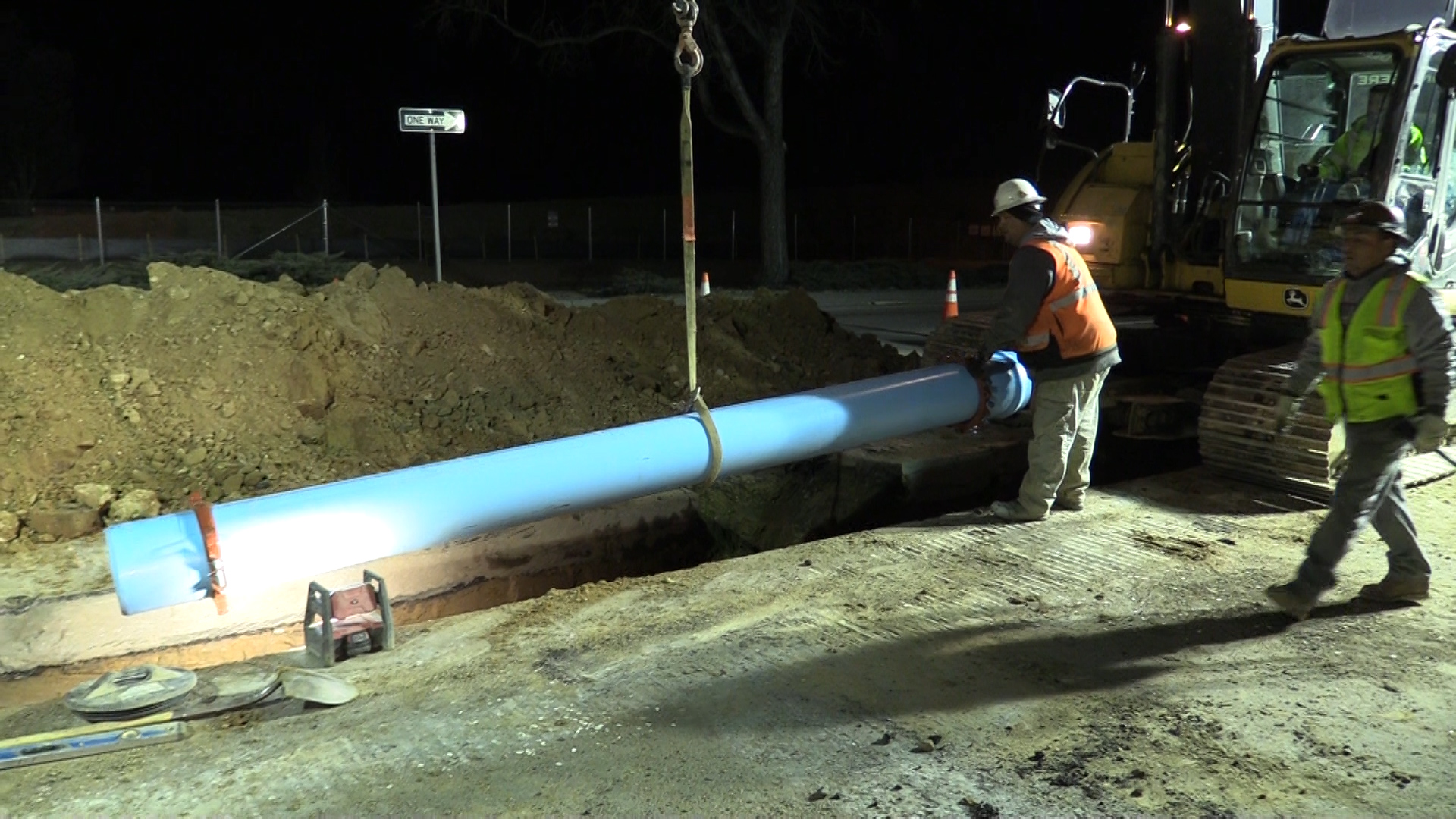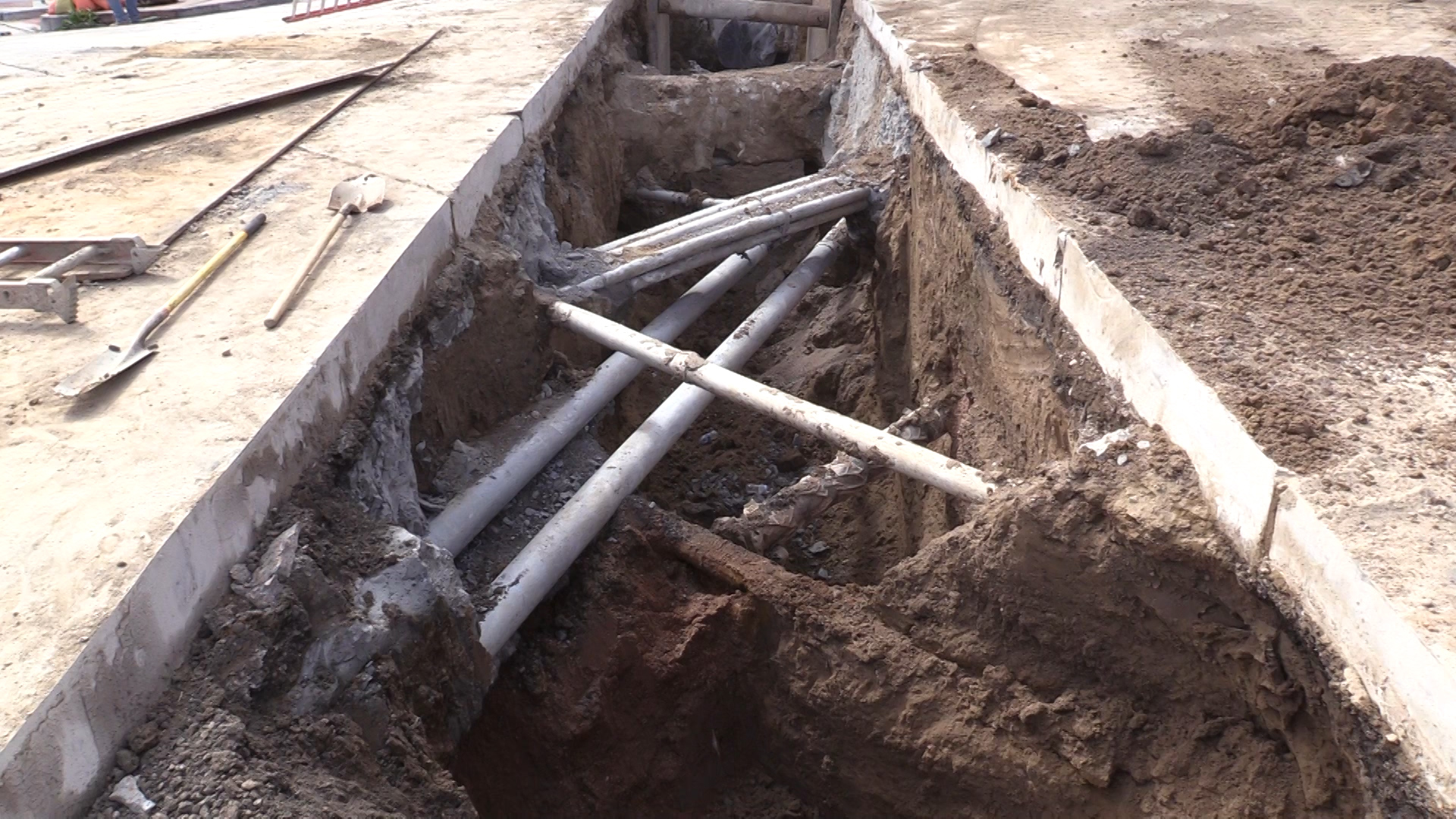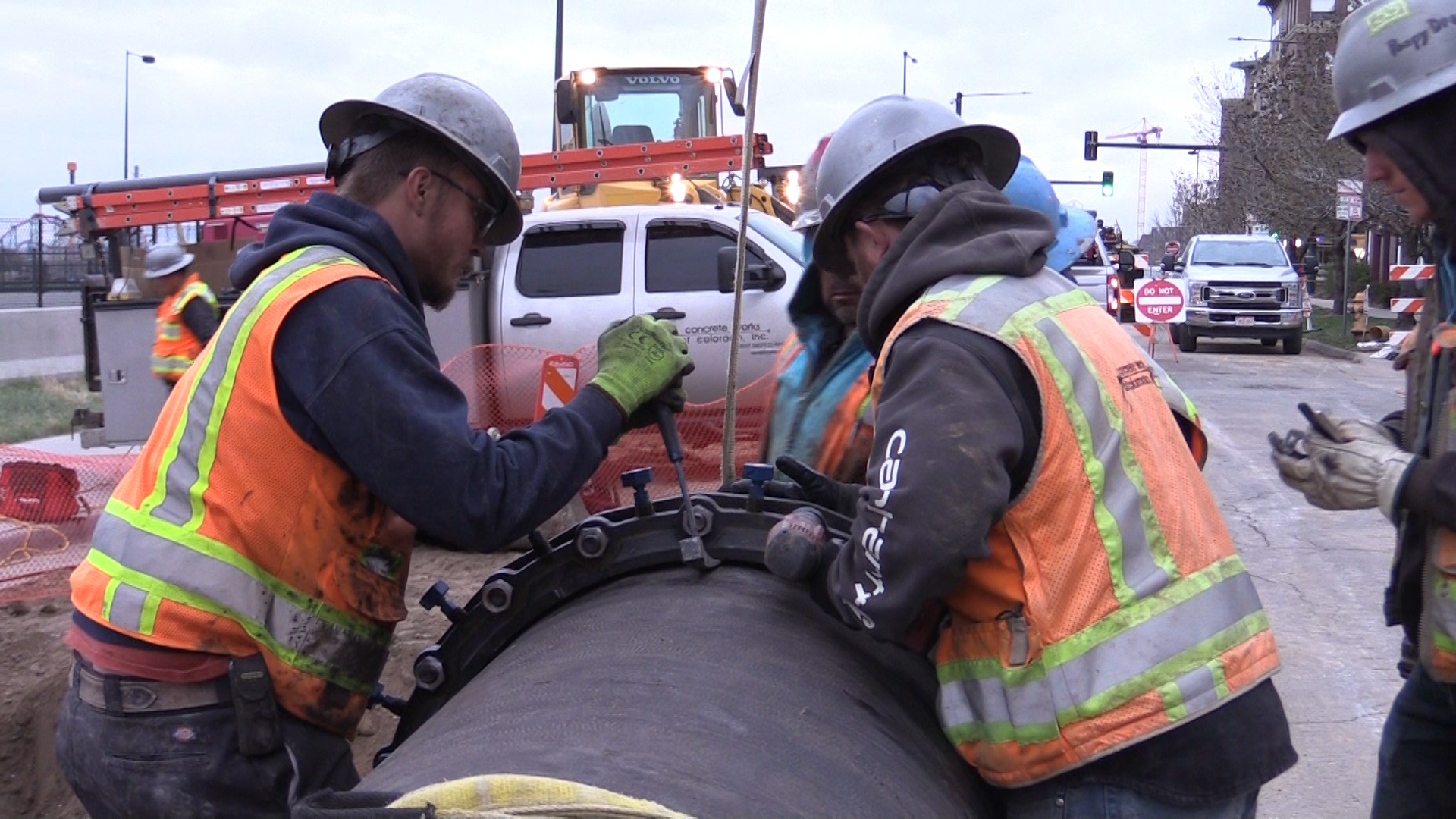
How traffic impacts today reduce headaches down the road
Construction work ahead. Road closed. Detour.
When you see these words prominently displayed across orange signs on your drive through the city, you know you have a long, and sometimes frustrating, journey in front of you.
But, in a lot of cases they also signal a valuable investment into the future of your community.
That’s exactly what the signs along a stretch of Colorado Boulevard near City Park and in Denver’s Highland neighborhood signified over the past seven months, where Denver Water completed replacement projects on water pipelines that were installed more than 100 years ago.
“These big projects take months of planning and have plenty of challenges along the way,” said Devin Shable, Denver Water project engineer.
Starting in October 2017, Denver Water replaced 6,800 feet of water mains along Colorado Boulevard, Montview Boulevard and East 17th Avenue. The $3.5-million project replaced the cast-iron pipes that dated back to the early 1900s with a new 12-inch-diameter PVC pipe.
“Colorado Boulevard is the busiest street in Denver, so we had to do all of our work at night to minimize the impact on traffic,” said Lance Paplow, Denver Water construction project inspector.
Crews had to wait until 7 p.m., when the afternoon rush was over, to start their work. Then, they had to be off the street the street by 5 a.m., before traffic picked back up the next morning.
“It’s hard work to dig up the street, remove the old main, install new sections of pipe and have the road open in time for rush-hour traffic,” Paplow said. “The construction crews have to work fast, smart and safe.”
On the $6 million Highland project, crews from Concrete Works of Colorado, replaced 4,500 feet of a 24-inch water pipe and added a new 30-inch-diameter pipe down the same corridor to improve water service in the area.
“The biggest challenge was locating and working around numerous utilities underground,” said Shable. “There were many layers of utilities under the street that we had to navigate to get the new pipe in place.”
Intersections near downtown were some of the most complicated parts of the project because there were multiple utility lines crisscrossing each other.
“We have to locate electrical, natural gas, fiber-optic, telephone, sewer and even our own water lines before we dig,” Shable said. “Once we find them, construction crews have to be extremely careful excavating the dirt around them to make way for the new pipes.”
Another complexity engrained in these type of projects is working with various community agencies to address the impacts on traffic, bus and pedestrian routes, and coordinating water outages with schools, businesses and homes in the area.
“We know these big projects were an inconvenience for people in the area,” Shable said. “The good news is that these pipes will improve water service, and they’re expected to last for 75 to 100 years.”



